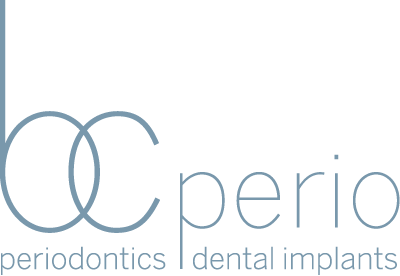When Hormones Can Affect Gum Health
When they spike, increased estrogen and progesterone increase the blood flow to your gum tissue, increasing its sensitivity and making it more sensitive to inflammation triggers, like oral bacteria-laden plaque. This phenomenon can ultimately result in the symptoms of gum disease.
The hormonal fluctuations associated with the following can result in issues with your gums.
- Puberty
- Menstrual cycle
- Use of hormonal birth control
- Pregnancy
- Menopause
Signs of Gum Disease
If you have the potential to experience such hormonal fluctuations, it’s important to monitor your gum tissue for any concerning symptoms. Healthy gum tissue is robust and pink, while diseased gum tissue may exhibit:
- Redness
- Swelling
- Bleeding
- Odor/Bad breath
- Development of pockets between the gums and the teeth
Such symptoms warrant follow up with a periodontist for evaluation and possible treatment. Keep in mind that you can reduce your risk of all types of gum disease, including hormonally influenced ones, by practicing good oral hygiene and seeing your dentist twice a year for checkups and cleanings.
Gum Disease Treatment Options
If you do need to work with a periodontist for gum disease treatment, the most effective intervention will depend on the stage of the condition. Gum disease is progressive, and its symptoms get worse as the condition advances. More severe gum disease necessitates more involved and invasive treatment.
- Deep cleaning – appropriate and effective for early stage gingivitis
- Root planing and scaling – thorough cleaning underneath any pockets in the gum tissue used for mild to moderate periodontitis
- Gum grafting – necessary to replace tissue lost to gum recession in advanced periodontitis
Tooth and bone loss can be the ultimate consequence of untreated gum disease, so to avoid that outcome, it’s important for patients to seek treatment as early in the process as possible.
Women who notice changes in their gum tissue, whether they are hormonally related or not, are encouraged to follow up with our team at BC Perio to schedule an evaluation and consultation.
